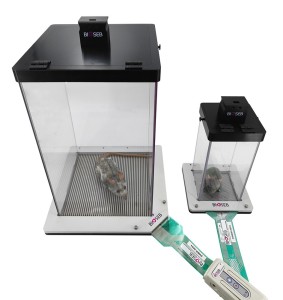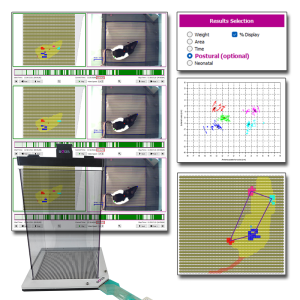Authors
C.M. Bagi, E.R. Berryman, S. Teo, N.E. Lane
Lab
University of California at Davis School of Medicine, USA
Journal
Osteoarthritis and Cartilage
Abstract
Objective
The aim of this study was to determine the ability of undenatured native chicken type II collagen (UC-II) to prevent excessive articular cartilage deterioration in a rat model of osteoarthritis (OA).
Methods
Twenty male rats were subjected to partial medial meniscectomy tear (PMMT) surgery to induce OA. Immediately after the surgery 10 rats received vehicle and another 10 rats oral daily dose of UC-II at 0.66 mg/kg for a period of 8 weeks. In addition 10 naïve rats were used as an intact control and another 10 rats received sham surgery. Study endpoints included a weight-bearing capacity of front and hind legs, serum biomarkers of bone and cartilage metabolism, analyses of subchondral and cancellous bone at the tibial epiphysis and metaphysis, and cartilage pathology at the medial tibial plateau using histological methods.
Results
PMMT surgery produced moderate OA at the medial tibial plateau. Specifically, the deterioration of articular cartilage negatively impacted the weight bearing capacity of the operated limb. Immediate treatment with the UC-II preserved the weight-bearing capacity of the injured leg, preserved integrity of the cancellous bone at tibial metaphysis and limited the excessive osteophyte formation and deterioration of articular cartilage.
Conclusion
Study results demonstrate that a clinically relevant daily dose of UC-II when applied immediately after injury can improve the mechanical function of the injured knee and prevent excessive deterioration of articular cartilage.
BIOSEB Instruments Used
Dynamic Weight Bearing 2.0 (BIO-DWB-DUAL)
Keywords/Topics
Arthritis & Osteoarthritis; Joints
Source :
https://www.sciencedirect.com/science/article/pii/S1063458417311639

 Pain - Thermal Allodynia / Hyperalgesia
Pain - Thermal Allodynia / Hyperalgesia Pain - Spontaneous Pain - Postural Deficit
Pain - Spontaneous Pain - Postural Deficit Pain - Mechanical Allodynia / Hyperalgesia
Pain - Mechanical Allodynia / Hyperalgesia Learning/Memory - Attention - Addiction
Learning/Memory - Attention - Addiction Physiology & Respiratory Research
Physiology & Respiratory Research











![Dynamic Weight Bearing 2.0 – Postural Module [Add-on]](https://bioseb.com/733-home_default/dynamic-weight-bearing-20-add-on-postural-module.jpg)
























 Pain
Pain Central Nervous System (CNS)
Central Nervous System (CNS) Neurodegeneration
Neurodegeneration Sensory system
Sensory system Motor control
Motor control Mood Disorders
Mood Disorders Other disorders
Other disorders Muscular system
Muscular system Joints
Joints Metabolism
Metabolism Cross-disciplinary subjects
Cross-disciplinary subjects CONFERENCES & MEETINGS
CONFERENCES & MEETINGS 
